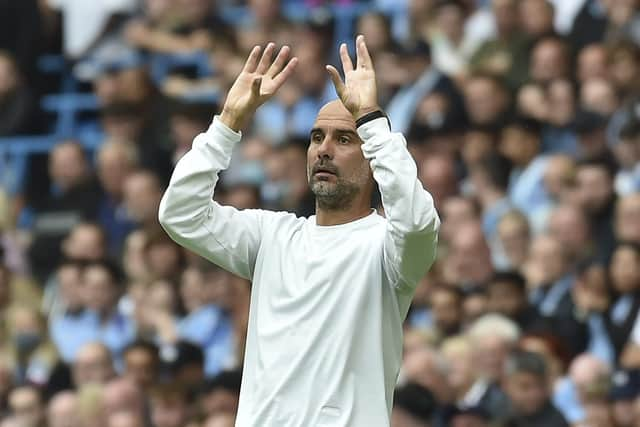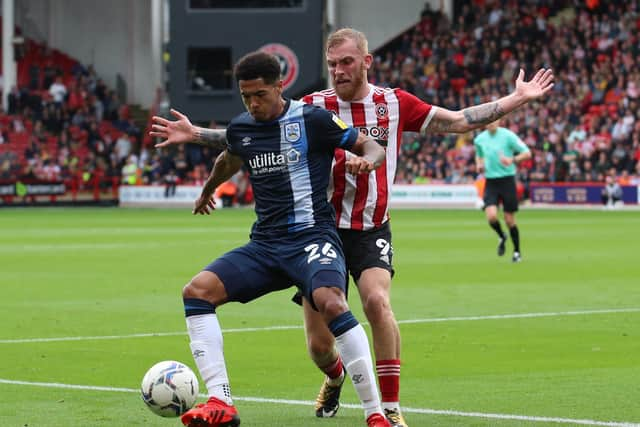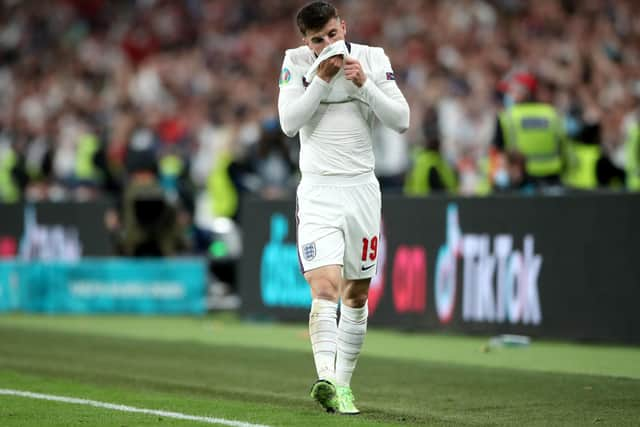Sorry Pep Guardiola, Premier League B teams are not the answer to player development conundrum – Stuart Rayner
It has been similar at Barnsley this season, where Jasper Moon has stepped up. Rhys Norrington-Davies has filled in at left-back at Sheffield United, where Iliman Ndiaye helped spark their season.
Jacob Greaves – like Cresswell, the son of a former player – and Keane Lewis-Potter are key figures for Hull City, just like Lewis O’Brien at Huddersfield Town, Rotherham United’s Ben Wiles, Dael Fry and Marcus Tavernier at Middlesbrough.
Advertisement
Hide AdAdvertisement
Hide AdA good academy-reared player brings so much extra. A local boy like Leeds’s Kalvin Phillips even more so. Liam Palmer’s affinity to Sheffield Wednesday has allowed them to keep him when by rights he should be playing in a higher division.


It seems so obvious, yet some clubs seem to want to use their youth set-ups for the wrong reasons. Some take the phrase “academy product” too literally, churning out commodities as a sideline to their core business.
Last week Pep Guardiola returned to what for him is an old chestnut. The Manchester City manager is a firm believer in B teams, like the one he managed at Barcelona and the one Bayern Munich had when he was in charge there.
Guardiola believes his best youngsters need weekly exposure to lower-league football, and not simply by being loaned out. As one of the greatest coaches of his generation, Guardiola’s opinions are always worth listening to but he has indentified the problem and come to the wrong conclusion.
Advertisement
Hide AdAdvertisement
Hide AdKicking historic clubs out of the league to make space for the likes of Manchester City B would be a betrayal of everything English football is about.


Last summer’s European Championship showed how the Premier League Elite Player Performance Plan is working brilliantly. Gareth Southgate was blessed to have Jack Grealish, Phil Foden, Bukayo Saka, Mason Mount, Ben White, Jadon Sancho and Jude Bellingham at his disposal.
But the clue is in the name – it is the Premier League’s EPPP and as we know, the Premier League only looks after the Premier League. Throughout football more resources, financial and playing, are being concentrated on the elite, even to the extent where transfering your nationality has never been easier. It drives standards at the top but at the expense of the rest.
The prices when “category one” academies (in Yorkshire, Leeds and Middlesbrough) pick off the best talent from the rest are artificially low.
Advertisement
Hide AdAdvertisement
Hide AdWhat makes English football so special is its depth. It needs protecting.


Instead, the big boys are allowed to enter under-21 sides into the Football League Trophy, a competition designed to offer the likes of Doncaster Rovers and Harrogate Town their day in the sun, in return for a few more pieces of silver.
But the loan system, in its own subtle way, is the most invidious aspect of this concentration of power, allowing clubs like Guardiola’s to stockpile players, distorting the pyramid.
The “on loan” section of Chelsea’s website (yes, they have one) lists 22 players, including Nathan Baxter at Hull and Levi Colwill at Huddersfield. They are being exposed to first-team football (less so Baxter), but at a price – their “parent clubs” still control them, lending to who they feel like on their terms. Billy Gilmour and Conor Gallagher are playing Premier League football this season, but not against Chelsea.
Advertisement
Hide AdAdvertisement
Hide AdPlayers who hop from one club to another on loan each season often speak of needing to find a home. Some just need to feel wanted.


Loans can be a valuable part of a youngster’s development but Reading are borrowing 31-year-old Premier League champion Danny Drinkwater from Chelsea.
Transfermarkt.co.uk estimates Chelsea’s Under-23 team sold £35.22m of players this summer – including Lewis Bate to Leeds for £1.5m – more than any other Premier League club in its entirety bar Aston Villa, Brighton and Hove Albion and Southampton, and that is before all the loan fees. If this article reads like Chelsea-bashing, they just stand out for having worked the system so much better than the rest in a financial sense, yet poorly in a footballing one.
Youth Cup winners from 2014 to 2018, they have produced good players in recent years – Kevin De Bruyne, Mohamed Salah, Declan Rice, Romelu Lukaku – but too few for their own first team. It took a transfer embargo to open the doors to the likes of Mount, Reece James, Callum Hudson-Odoi, Tammy Abraham and Fikayo Tomori and already some have been cut adrift.
Advertisement
Hide AdAdvertisement
Hide AdChelsea loan Colwill to Huddersfield, who loan Edmonds-Green to Rotherham, who loan Jake Hull to Guiseley rather than each nurturing their own. If there were only limits on the number of players clubs could employ and the number they can loan out, more could find their natural levels working for clubs invested in them, not just buffing them up to return to the back of a long queue, neither a priority at their parent club or the loaning one.
Academies should exist to produce footballers for a club’s first team, instead of just cutting losses when they do not live up to expectations. Too many are being sold short.
Comment Guidelines
National World encourages reader discussion on our stories. User feedback, insights and back-and-forth exchanges add a rich layer of context to reporting. Please review our Community Guidelines before commenting.